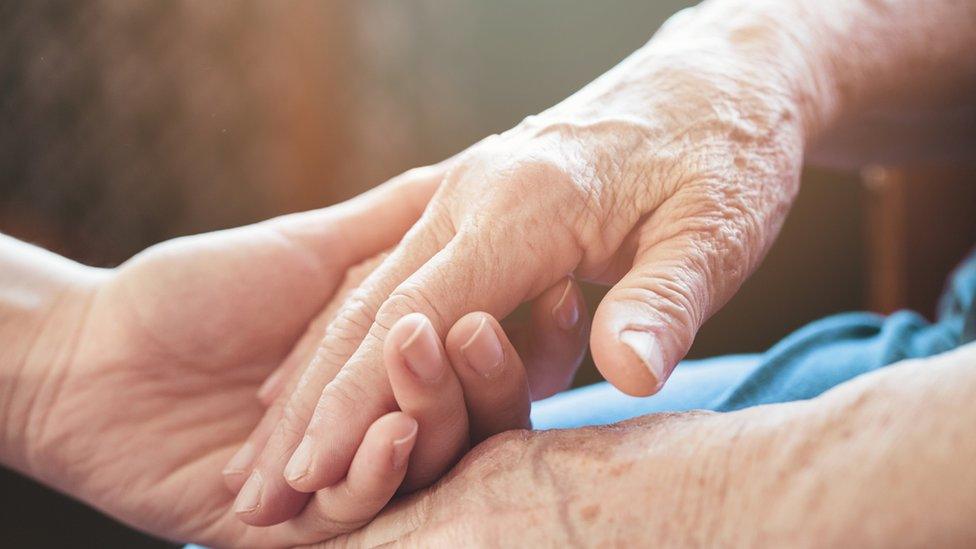Poor end-of-life care experienced by 48,000 people
- Published

An estimated 48,000 people who died last year experienced poor care when dying, says a report from seven charities including Macmillan.
This is due to too many people dying in hospital, rather than at home or in other settings, it says, where they would prefer to be.
The charities' report calls on the government to set out how they are going to improve end-of-life care.
NHS England said instances of poor care should be taken seriously.
And it said a recent survey found that three-quarters of bereaved people rated the overall quality of end-of-life care for their relative as 'good' or 'better'.
The report, produced by Macmillan Cancer Support, Marie Curie, Cicely Saunders Institute, Hospice UK, Motor Neurone Disease Association, National Council of Palliative Care and Sue Ryder, details the way in which dying people are currently failed by the system.
It says some people are left unsupported at home at the end of their lives and many families receive no advice on how to care for their dying relatives.
This can lead to people being admitted to hospital in an emergency when they are seriously ill.
'Marooned'
The report - - said this is putting extra pressure on the NHS resources - costing an average of Ā£4,500 per person who dies in hospital and accounting for nearly three million bed days for people at the very end of their lives.
In a national survey of bereaved people, 10% of carers rated their loved one's care as 'poor' in the last three months of their life - equivalent to 48,000 people in 2015.
Although a recent survey of bereaved carers found that just 3% of people wanted to die in hospital, 220,000 out of 470,000 people died in hospital in 2014.
Lynda Thomas, chief executive of Macmillan Cancer Support, speaking on behalf of the coalition of charities, said: "People at the end of life should be given choice over important issues such as where they spend their final days, and sadly we know that this isn't always the case.
"Too often we hear of people being marooned in hospital, because they are not getting the right care at home. Nobody wants to see this happen as it is an appalling situation for the individual and puts strain on the health service."
She said a review of choice at the end of life, which was published last year, was still awaiting a government response.
An NHS England spokesman said a separate international comparison found that the UK leads the world in end-of-life care.
"However, any instances of poor care should be taken seriously and we want to continue improving people's experience of care, which is why we are working with other agencies and charities to support local commissioners to meet the needs of their local populations."
- Published6 October 2015
- Published16 December 2015
- Published20 May 2015
- Published20 May 2015